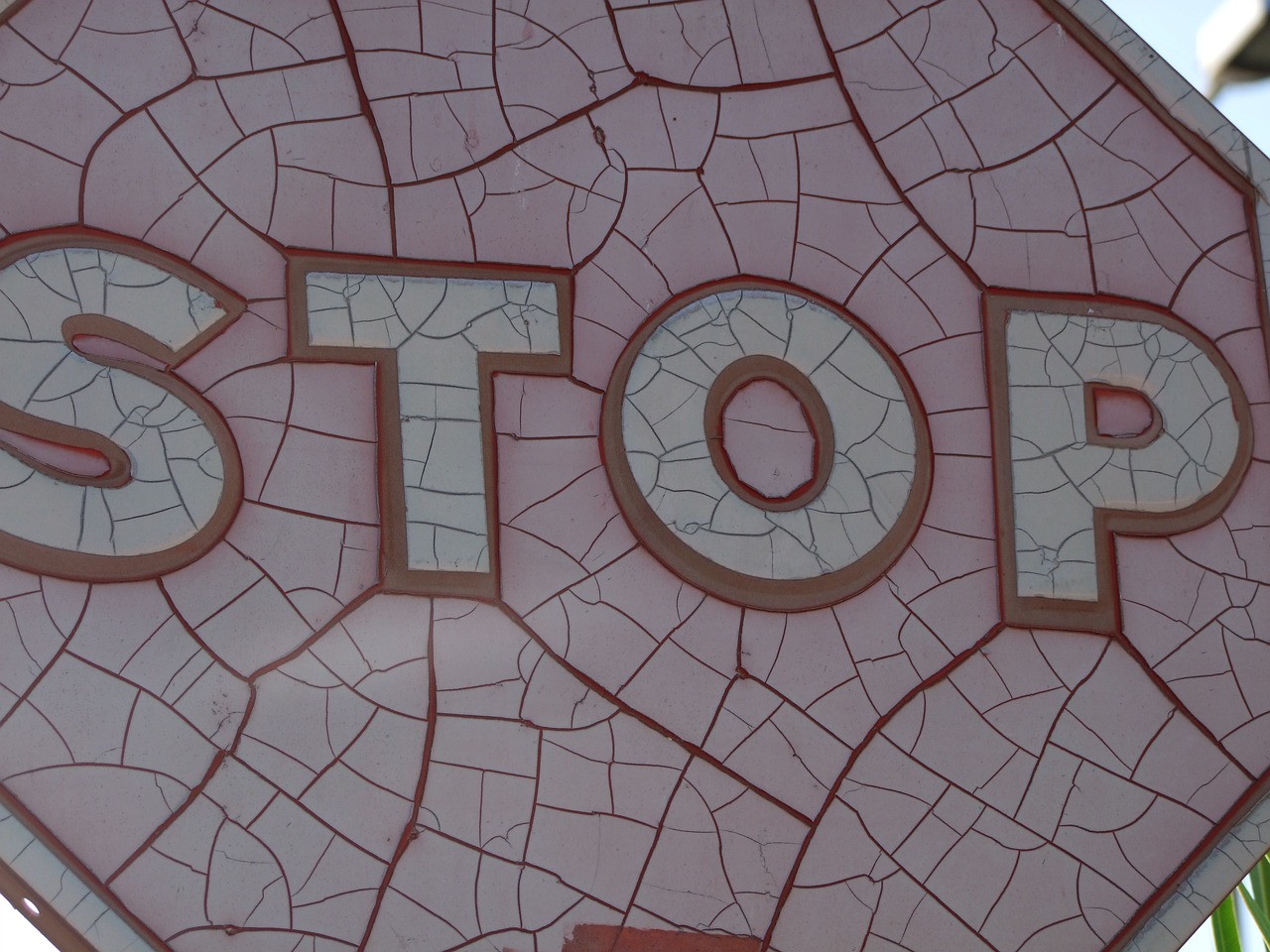The Role of Literature in Social Change
Literature has long been a powerful tool for sparking social change, serving as a mirror to society and a catalyst for transformation. Through the ages, literary works have played a significant role in shaping societal norms, challenging injustices, and amplifying voices that may otherwise go unheard.
Historically, iconic pieces of literature like Uncle Tom's Cabin and The Jungle have ignited social movements and brought attention to pressing issues such as slavery and labor conditions. These works not only shed light on the harsh realities of the time but also galvanized public opinion, leading to tangible changes in policies and attitudes.
Moreover, literature has the power to empower marginalized communities by providing representation and a platform to share their stories. By offering diverse perspectives and narratives, literature can foster empathy, understanding, and solidarity among individuals from different backgrounds.
One of the key strengths of literature lies in its ability to challenge societal norms and values. By presenting alternative viewpoints and questioning established beliefs, literary works provoke critical thinking and encourage discussions that can ultimately drive social transformation.
Through storytelling and narrative, literature raises awareness about social issues and advocates for change in a compelling and engaging manner. By weaving themes of justice, equality, and human rights into their works, authors have the power to inspire readers to take action and make a difference in their communities.
Furthermore, literature addresses intersectional identities and promotes diversity, recognizing the complexities of human experiences and the importance of inclusivity in social change efforts. By portraying characters from diverse backgrounds and exploring multifaceted issues, literature contributes to a more nuanced understanding of the world we live in.
Across the globe, literature plays a vital role in social change movements by sharing stories that resonate across cultures and borders. By highlighting shared struggles, aspirations, and values, literature fosters a sense of global solidarity and collective action towards a more just and equitable society.
In the digital age, literature intersects with social media and digital platforms to amplify voices, mobilize communities, and shape contemporary activism. Through online storytelling, blogging, and social networking, authors and readers alike can connect, collaborate, and advocate for change on a global scale.
Looking ahead, the evolving role of literature in driving social change in the digital age holds immense possibilities for shaping future societal transformations. As technology continues to advance and communication channels expand, literature remains a dynamic force for inspiring, informing, and mobilizing individuals towards a more just and inclusive world.

Historical Perspectives
Exploring how literature has historically influenced societal shifts and continues to serve as a catalyst for change in modern times.
Examining the impact of literary works such as Uncle Tom's Cabin and The Jungle on past social movements.
Literature has long been a powerful tool for sparking social change throughout history. Works like Uncle Tom's Cabin by Harriet Beecher Stowe and The Jungle by Upton Sinclair are prime examples of how literature can ignite movements and shed light on societal injustices. These influential pieces of writing not only captured the attention of readers but also stirred emotions and provoked discussions that led to tangible changes in society. Through vivid storytelling and compelling narratives, these authors were able to challenge the status quo and push for reforms that reverberated far beyond the pages of their books.
In the context of historical perspectives, literature served as a mirror reflecting the harsh realities of the time, exposing the cruelties of slavery, labor exploitation, and other social issues. By bringing these issues to the forefront of public consciousness, authors were able to mobilize communities, galvanize support for reform movements, and ultimately contribute to the shaping of a more just and equitable society.
Moreover, the impact of these literary works extended beyond their initial publication, leaving a lasting legacy that continues to inspire contemporary writers and activists to use their voices as instruments of change. The historical perspectives offered by these seminal works remind us of the enduring power of literature to challenge entrenched systems of oppression, provoke critical thinking, and pave the way for a more inclusive and compassionate society.

Uncle Tom's Cabin
Exploring how literature has historically influenced societal shifts and continues to serve as a catalyst for change in modern times.
Examining the impact of literary works such as and The Jungle on past social movements.
Analyzing how literature can empower marginalized communities by providing representation and amplifying their voices.
Discussing how literature challenges societal norms and values, sparking conversations that lead to social transformation.
Exploring how literature raises awareness about social issues and advocates for change through storytelling and narrative.
Examining how literature addresses intersectional identities and promotes diversity, fostering inclusivity in social change efforts.
Considering the role of literature in social change movements worldwide, highlighting cross-cultural influences and shared narratives.
Exploring the intersection of literature, social media, and digital platforms in shaping contemporary social movements and activism.
Speculating on the evolving role of literature in driving social change in the digital age and its potential impact on future societal transformations.
is a seminal anti-slavery novel written by Harriet Beecher Stowe. Published in 1852, the book depicts the harsh realities of slavery in the United States, particularly focusing on the experiences of African American slaves. Through its vivid portrayal of the inhumane treatment of slaves and the moral dilemmas faced by its characters, played a significant role in shaping public opinion and fueling the abolitionist movement. The novel challenged the prevailing beliefs about race and slavery, sparking debates and contributing to the eventual abolition of slavery in the United States.
Q: How did contribute to the abolitionist movement?
A: exposed the brutalities of slavery and humanized the experiences of enslaved individuals, evoking empathy and outrage among readers. Its emotional impact helped galvanize support for the abolitionist cause and mobilized public sentiment against the institution of slavery.
Q: What themes are prevalent in ?
A: Themes of family, faith, morality, and the inherent dignity of all individuals permeate . The novel also explores the complexities of power dynamics, racial injustice, and the resilience of the human spirit in the face of adversity.
Q: How did the reception of differ between the North and the South?
A: While the novel was widely embraced in the North for its anti-slavery stance and emotional impact, it faced harsh criticism and backlash in the South, where pro-slavery sentiments were prevalent. Southerners viewed the book as a threat to their way of life and sought to discredit its portrayal of slavery.

and
Exploring how literature has historically influenced societal shifts and continues to serve as a catalyst for change in modern times.
Examining the impact of literary works such as Uncle Tom's Cabin and The Jungle on past social movements.
Analyzing how literature can empower marginalized communities by providing representation and amplifying their voices.
Discussing how literature challenges societal norms and values, sparking conversations that lead to social transformation.
Exploring how literature raises awareness about social issues and advocates for change through storytelling and narrative.
Examining how literature addresses intersectional identities and promotes diversity, fostering inclusivity in social change efforts.
Considering the role of literature in social change movements worldwide, highlighting cross-cultural influences and shared narratives.
Exploring the intersection of literature, social media, and digital platforms in shaping contemporary social movements and activism.
Speculating on the evolving role of literature in driving social change in the digital age and its potential impact on future societal transformations.
When we consider the conjunction "and" in the context of literature and social change, it symbolizes the interconnectedness and collaboration needed for impactful societal transformation. Just as characters in a novel work together towards a common goal, literature and social change must also join forces to create meaningful impact. The relationship between literature and social change is not one of mere coincidence but rather a deliberate partnership, where the power of storytelling merges with the drive for progress. Through the fusion of creative expression and advocacy, literature becomes a powerful tool for shaping narratives and influencing change. It is in the seamless integration of literature and social change that we find the potential for explosive growth and lasting impact.

The Jungle
Exploring how literature has historically influenced societal shifts and continues to serve as a catalyst for change in modern times.
Examining the impact of literary works such as Uncle Tom's Cabin and on past social movements.
Analyzing how literature can empower marginalized communities by providing representation and amplifying their voices.
Discussing how literature challenges societal norms and values, sparking conversations that lead to social transformation.
Exploring how literature raises awareness about social issues and advocates for change through storytelling and narrative.
Examining how literature addresses intersectional identities and promotes diversity, fostering inclusivity in social change efforts.
Considering the role of literature in social change movements worldwide, highlighting cross-cultural influences and shared narratives.
Exploring the intersection of literature, social media, and digital platforms in shaping contemporary social movements and activism.
Speculating on the evolving role of literature in driving social change in the digital age and its potential impact on future societal transformations.
is a powerful novel written by Upton Sinclair that exposes the harsh realities of the meatpacking industry in Chicago during the early 20th century. Through vivid descriptions and compelling storytelling, Sinclair sheds light on the exploitation of immigrant workers, unsanitary working conditions, and corruption within the industry. The novel sparked public outrage and led to significant reforms in food safety regulations and labor laws, demonstrating the profound impact literature can have on societal change.

on past social movements.
Exploring how literature has historically influenced societal shifts and continues to serve as a catalyst for change in modern times.
Examining the impact of literary works such as Uncle Tom's Cabin and The Jungle on past social movements.

Representation and Empowerment
Exploring how literature has historically influenced societal shifts and continues to serve as a catalyst for change in modern times.
Examining the impact of literary works such as Uncle Tom's Cabin and The Jungle on past social movements.
When it comes to , literature plays a crucial role in giving a voice to marginalized communities. By depicting diverse characters and experiences, literature not only offers a mirror to society but also serves as a window through which readers can empathize with others' struggles. Through powerful storytelling, literature has the ability to empower individuals who have been historically silenced, allowing them to see themselves reflected in narratives and fostering a sense of belonging and agency.
Discussing how literature challenges societal norms and values, sparking conversations that lead to social transformation.
Exploring how literature raises awareness about social issues and advocates for change through storytelling and narrative.
Examining how literature addresses intersectional identities and promotes diversity, fostering inclusivity in social change efforts.
Considering the role of literature in social change movements worldwide, highlighting cross-cultural influences and shared narratives.
Exploring the intersection of literature, social media, and digital platforms in shaping contemporary social movements and activism.
Speculating on the evolving role of literature in driving social change in the digital age and its potential impact on future societal transformations.

Challenging Norms and Values
Exploring how literature has historically influenced societal shifts and continues to serve as a catalyst for change in modern times.
Examining the impact of literary works such as Uncle Tom's Cabin and The Jungle on past social movements.
Analyzing how literature can empower marginalized communities by providing representation and amplifying their voices.
Discussing how literature challenges societal norms and values, sparking conversations that lead to social transformation.
Literature has a unique ability to challenge the status quo and question established norms and values within society. Through thought-provoking narratives and compelling characters, literary works push readers to reconsider their beliefs and perceptions. Just like a skilled magician reveals the secrets behind their tricks, literature unveils the hidden truths and complexities of societal structures, inviting readers to critically analyze and reflect on the world around them. It acts as a mirror that reflects both the beauty and flaws of society, urging individuals to confront uncomfortable truths and envision a different reality.
Exploring how literature raises awareness about social issues and advocates for change through storytelling and narrative.
Examining how literature addresses intersectional identities and promotes diversity, fostering inclusivity in social change efforts.
Considering the role of literature in social change movements worldwide, highlighting cross-cultural influences and shared narratives.
Exploring the intersection of literature, social media, and digital platforms in shaping contemporary social movements and activism.
Speculating on the evolving role of literature in driving social change in the digital age and its potential impact on future societal transformations.

Advocacy and Awareness
Exploring how literature has historically influenced societal shifts and continues to serve as a catalyst for change in modern times.
Examining the impact of literary works such as Uncle Tom's Cabin and The Jungle on past social movements.
Analyzing how literature can empower marginalized communities by providing representation and amplifying their voices.
Discussing how literature challenges societal norms and values, sparking conversations that lead to social transformation.
Exploring how literature raises awareness about social issues and advocates for change through storytelling and narrative.
Literature has a unique power to advocate for social change and raise awareness about pressing issues. Through compelling storytelling and vivid narratives, authors can shed light on marginalized communities, injustices, and systemic problems. By weaving these themes into their works, literature acts as a powerful tool for advocacy, prompting readers to reflect on societal issues and inspiring action.
Examining how literature addresses intersectional identities and promotes diversity, fostering inclusivity in social change efforts.
Considering the role of literature in social change movements worldwide, highlighting cross-cultural influences and shared narratives.
Exploring the intersection of literature, social media, and digital platforms in shaping contemporary social movements and activism.
Speculating on the evolving role of literature in driving social change in the digital age and its potential impact on future societal transformations.

Intersectionality and Diversity
When exploring the intricate relationship between literature and social change, one cannot overlook the crucial role of intersectionality and diversity. In today's society, where individuals navigate multiple identities and experiences, literature plays a vital role in addressing these complexities and promoting inclusivity. By acknowledging and embracing the intersectional nature of human existence, literature has the power to amplify diverse voices and foster a sense of belonging among marginalized communities.
Through the lens of intersectionality, literature delves into the interconnected nature of social categorizations such as race, gender, class, and sexuality. By weaving together these diverse threads of identity, literary works offer a more nuanced and holistic portrayal of human experiences. This multifaceted approach not only enriches storytelling but also challenges traditional narratives and stereotypes, paving the way for a more inclusive and representative literary landscape.
Moreover, diversity in literature goes beyond mere representation; it encompasses a commitment to equity and social justice. By showcasing a wide range of perspectives and experiences, literature has the power to challenge existing power structures and amplify the voices of those often marginalized or silenced. Through diverse narratives and characters, literature can bridge divides, foster empathy, and inspire collective action towards a more equitable and just society.
Intersectionality and diversity in literature serve as a mirror reflecting the rich tapestry of human existence, inviting readers to engage with complex and multifaceted narratives. By embracing the intersections of identity and amplifying diverse voices, literature not only mirrors society but also has the potential to shape and transform it, making way for a more inclusive and empowering future.

Global Perspectives
Literature's impact on social change extends far beyond national borders, with global perspectives shedding light on the interconnected nature of societal transformations. Through the lens of diverse cultures and experiences, literature serves as a bridge that connects individuals worldwide, fostering empathy and understanding. The exchange of ideas and narratives across different regions not only enriches the collective human experience but also amplifies the voices of marginalized communities on a global scale. By exploring themes that resonate universally, literature has the power to inspire change and unity across continents, transcending linguistic and cultural barriers.

